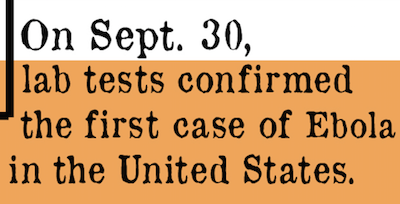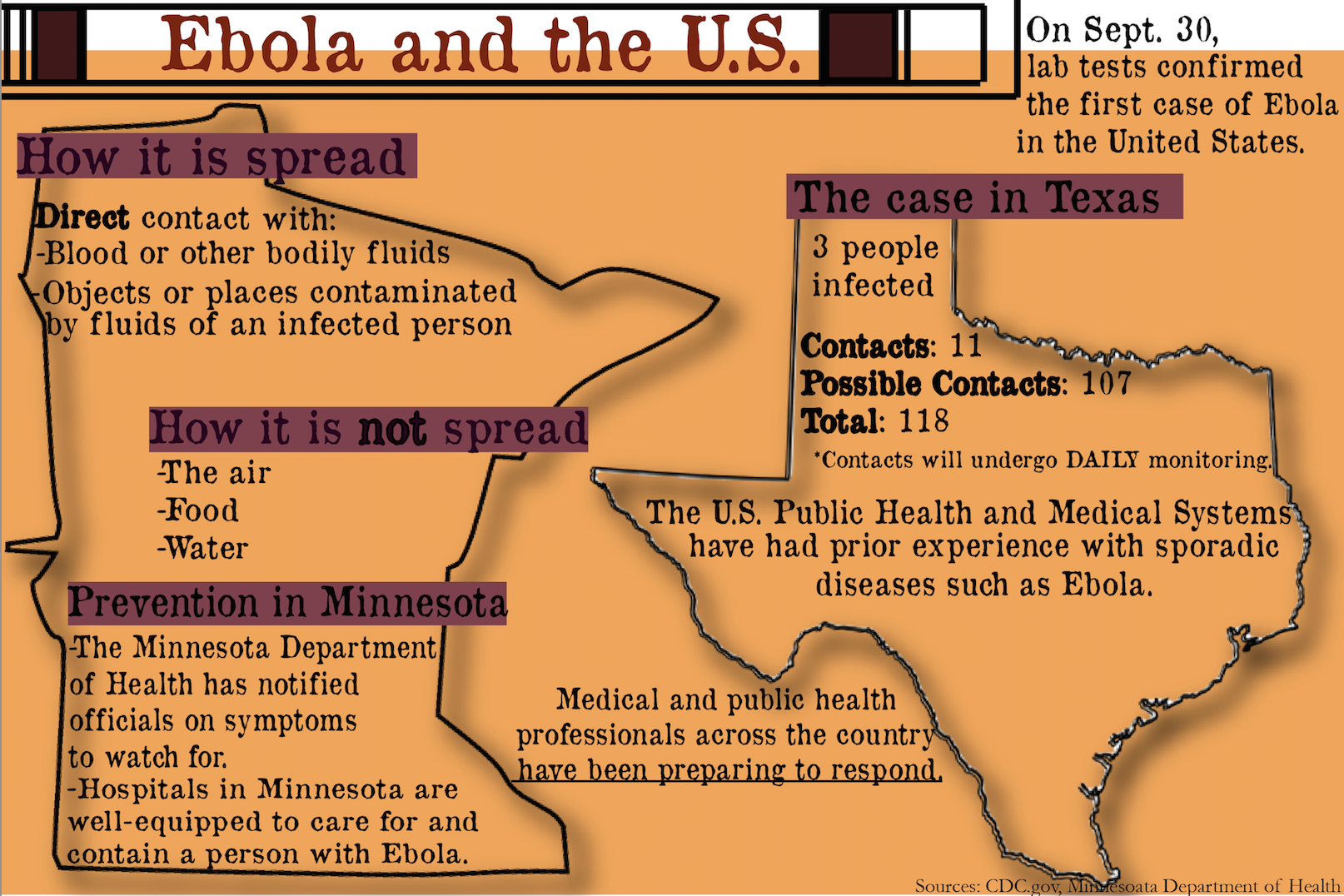The Minnesota Department of Health and St. Thomas Health Services say students are at low risk for catching the deadly Ebola virus, which has claimed more than 4,000 lives worldwide, according to the Centers for Disease Control and Prevention.
The most important thing for students to know, according to Doug Schultz, MDH information officer, is that Ebola can only be contracted through contact with body fluids, such as vomit, fecal matter, semen, blood and saliva.
“It’s very important for people to understand it’s not easily transmitted,” Schultz said. “That can help people understand what their risk is.”
Schultz said the reason it has spread in West Africa is because of a lack of proper sanitation, mishandling of bodies and inadequate medical capabilities.
However, St. Thomas Health Services and the Study Abroad office are also working with the MDH to take necessary precautions.
Study Abroad issued a student travel restriction to Liberia, Sierra Leone and Guinea in accordance with the CDC’s Level 3 Travel Warning; and currently, no St. Thomas students studying abroad are in at-risk areas, according to a Study Abroad statement on Oct. 9.
In addition, Health Services does question students who have been traveling about potential exposure.
“We don’t have any students studying abroad in those endemic areas,” Director of Health Services Madonna McDermott said. “There’s not really a risk to any students overseas right now.”
The outbreak has impacted the Semester at Sea program, which some St. Thomas students are currently on. The ship was diverted from five port stops in West Africa and instead re-routed to Spain, according to junior Johannah Saari, who is on Semester at Sea.
“Although I probably would have been fine, I was more worried about other people coming back on the ship and then getting everyone else sick,” Saari said in an email.
“Another worry of the staff/students was that if we had gone to those ports, there was a chance that we would have to be contained on the ship for weeks to make sure that none of us were infected.”
Semester at Sea junior Emilyne Florin said she is not concerned about the disease.
“Personally, I am not concerned about catching Ebola at all,” Florin said in an email. “Our program takes our health very seriously and is monitoring the whereabouts of every student to ensure that nobody brings the virus onto the ship.”
While contracting the virus may be difficult, MDH will not be surprised if Ebola comes to Minnesota.
Schultz said the international airport and a large West African community in the Twin Cities make it possible to see a case in Minnesota.
“We’re anticipating we might see one given the large Liberian community here, but it’s important to note we weren’t the first one, and we haven’t even had to test for Ebola in Minnesota yet. That’s kind of the good news,” Schultz said.
In fact, Minnesota hospitals and medical providers have been preparing for a case since July, according to Schultz.
“We have the tools and resources to solve this particular problem, and I have no doubt we’ll be able to do that if we have a case in Minnesota,” Schultz said.
On the off chance an Ebola case is found in Minnesota or at St. Thomas, McDermott said Health Services would work closely with the MDH to follow protocol.
McDermott said other health risks could impact students.
“It’s much more likely that we’ll see cases of influenza because it’s already here,” McDermott said. “We need to be conscious of that.”
However, Schultz said it is good to be concerned about Ebola.
“When we’re concerned about something, it makes us more aware and attentive to what’s going on, and that can really help people become educated about what the disease is,” Schultz said. “We’re strengthening our public health infrastructure and our public health systems in order to make sure we’re 100 percent ready to respond, as ready as anybody can be.”
Simeon Lancaster can be reached at lanc4637@stthomas.edu.




